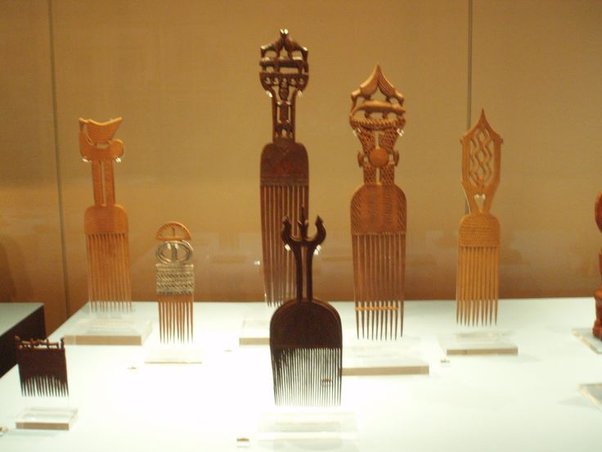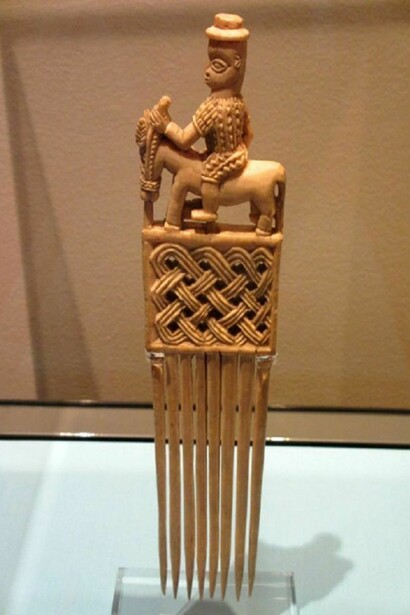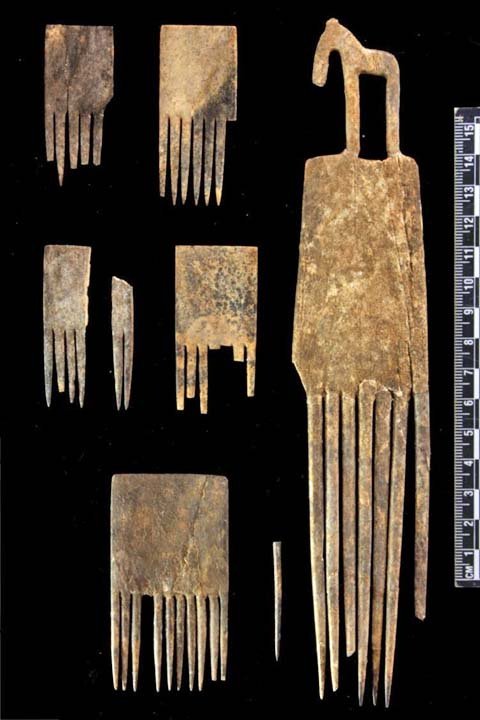The Afro comb, also known as the hair pick, is far more than just a styling tool. While often associated with African American culture, its roots trace back thousands of years and span continents. This article delves into the rich history and cultural significance of the Afro comb, illustrating why it stands as a powerful symbol of black pride and identity.
The True Origins of the Afro Comb

Contrary to popular belief, the Afro comb did not originate in North America. Its history dates back about 6000 years to ancient Egypt. These combs have since made their way across the globe, appearing in Britain, the Americas, and the Caribbean. A 2013 exhibition at Cambridge University’s Fitzwilliam Museum shed light on the ancient origins of the Afro comb, revealing its deep historical roots.
Symbol of Power and Strength
In modern times, the Afro comb has been popularized by African Americans. It serves as a potent symbol of power and strength within the black community, not only in North America but also in Africa and the Caribbean. The Afro comb represents a connection to indigenous tribes, religious beliefs, and cultural rituals. The handles of these combs often carry significant messages and symbols, showcasing a person’s reputation and status within their community.
Cultural Significance in Africa

Many African societies continue to revere the Afro comb, seeing it as an important cultural artifact. In Nigeria, for example, various versions of the hair pick are still produced today. These combs come in different colors and materials, including wood and metal, following concerns about the durability of plastic versions.
The handles of Afro combs are sometimes intricately designed, featuring human figures, motifs, or depictions of natural and spiritual elements. These designs are not merely decorative; they convey cultural and spiritual messages that are deeply valued in African societies.
The Afro Comb in African American Culture
The latter part of the 20th century, especially the 1970s, saw the Afro comb becoming increasingly significant in African American culture and politics. The Black Power salute, popularized by the Black Panthers, led to the creation of Afro combs with black fist designs. Samuel H. Bundles, Jr. and Henry M. Childrey (Tulloch) patented the black fist Afro comb after introducing it in 1969.
Beyond a Styling Tool

Over time, the Afro comb evolved from a simple tool for grooming into a symbol of solidarity with the Black Power movement and a cultural statement. The Black Civil Rights movement championed the slogan “Black is Beautiful,” encouraging black women to embrace their natural hair rather than conform to European beauty standards. Icons like Miriam Makeba and Nina Simone proudly wore their afros, symbolizing black pride and cultural identity.
The Afro Comb Today

Today, when you purchase an Afro comb, you are buying much more than a hair styling accessory. To many, it represents “Black Power” and “Black pride,” as well as “unity” and “peace.” The Afro comb speaks volumes about the rich history and cultural identity of the black community.
Interestingly, the use of the Afro comb now transcends the black community. People of various ethnic backgrounds appreciate the comb for its practicality, especially its wide teeth that are excellent for detangling all types of hair. The Afro comb has become a favorite accessory for anyone with curly hair, highlighting its versatility and enduring appeal.
Conclusion
The Afro comb is a profound symbol of black pride and identity, with a history that spans thousands of years and continents. It has evolved from a practical grooming tool into a powerful emblem of cultural heritage and solidarity. The next time you use an Afro comb, remember that you are holding a piece of history and culture that continues to inspire and unite people around the world.
